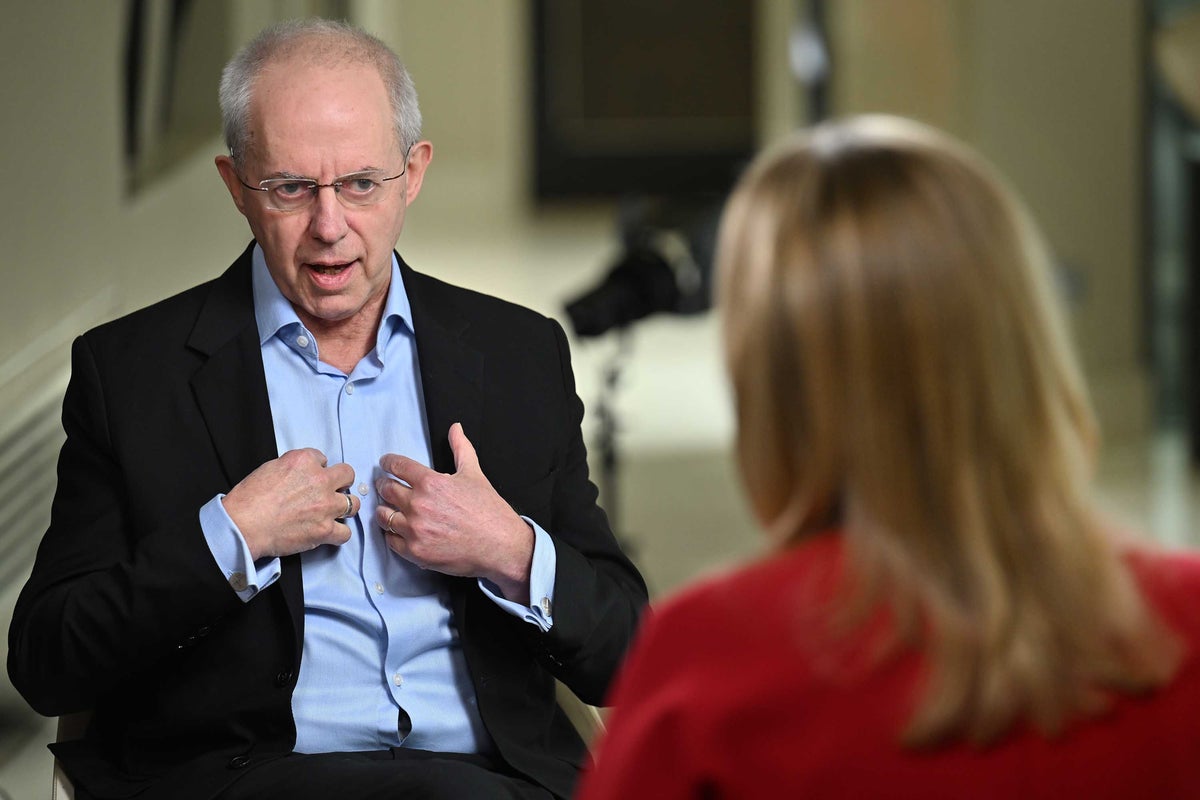
Justin Welby has said he would forgive serial Church of England abuser John Smyth if he was still alive today after the scandal led to his resignation as Archbishop of Canterbury.
The former most senior bishop in the Church also repeated an apology to victims on Sunday and told of the “deep sense of personal failure” he feels about the handling of allegations made against Smyth – thought to be the most prolific abuser associated with the Church.
Mr Welby, who resigned in November and stepped down officially in January, said he had “not really thought it through enough, to be honest” when he initially declined to quit over the Makin report into the scandal last year.
The report into Smyth found Mr Welby did not adequately follow up on reports about the Christian camp leader and barrister, who is said to have subjected as many as 130 boys and young men to traumatic abuse across five decades in three different countries in the UK and Africa. In a damning conclusion, the report said Smyth might have been brought to justice had Mr Welby formally reported allegations to police in 2013.
In his first interview since his resignation, Mr Welby was asked if he could forgive the now dead clergyman, telling the BBC’s Sunday With Laura Kuenssberg programme: “Yes, I think if he was alive and I saw him.”
He added: “But it’s not, it’s not me he has abused. He’s abused the victims and survivors. So whether I forgive or not is to a large extent, irrelevant.
“What matters is: are the survivors – and everyone responds differently to abuse – but are the survivors sufficiently loved by the Church and cared for and are enabled, liberated to rebuild their lives? After that, you can start talking about forgiveness.”
A spokesperson for the Church said Mr Welby’s interview “will be a reminder to Smyth survivors of their awful abuse and its lifelong effects” and that it is “deeply sorry for the abuse they suffered”.
Asked if he wanted forgiveness from Smyth’s victims, Mr Welby said: “Obviously, but it’s not about me. When we talk about safeguarding, the centre of it is the victims and survivors. I have never, ever said to a survivor, ‘you must forgive’, because that is their sovereign, absolute individual choice. Everyone wants to be forgiven, but to demand forgiveness is to abuse again.”
Repeating an apology to abuse victims, he said: “Just for the avoidance of doubt, I am utterly sorry and feel a deep sense of personal failure both for the victims of Smyth not being picked up sufficiently after 2017 when we knew the extent of it, and for my own personal failures.”
A victim of Smyth, known only as Graham, told the BBC that “what the Church has put me through [since coming forward with abuse allegations] makes the historic abuse pale into insignificance”. He described trying to get answers and support as “the most extraordinary, traumatic journey”.
Mr Welby said he had not been “sufficiently pushy in a way that I would have been a few years later”, insisting the first he heard of Smyth’s offences was in August of 2013. He said he had been overwhelmed by the sheer scale of the abuse problem, saying while this was not an excuse, it was a reason he had not prioritised the Smyth case and admitted: “The reality is I got it wrong.”
Graham said Mr Welby was “scrabbling around for explanation” and that the Church remains overwhelmed by abuse cases and is no better at dealing with abuse.
Asked if would ever forgive Mr Welby, Graham said: “Not if he continues to blank us and refuses to tell us the truth.”
Mr Welby acknowledged he “should have pushed harder” on investigating abuse allegations in the Church and claimed he still felt responsible for how they were handled.
He told the broadcaster: “I know that I let God down, I let people down.”
Yvette Cooper said she finds “it very difficult to forgive terrible criminals” when asked later on the programme about Mr Welby’s suggestion he would forgive Smyth.
The home secretary said that the government is set to introduce a law, which will make failure to report child abuse or attempts to block reporting of the crime a criminal offence.
When asked how many people in the Church had known about the abuse, Mr Welby said a dozen people within the Church of England are currently going through a disciplinary process related to Smyth.
Mr Welby also said he is “profoundly ashamed” by his final speech in the House of Lords, which prompted anger from abuse victims last year as critics accused him of using a seemingly jokey tone when discussing serious safeguarding failures.
Following Mr Welby’s interview, Lead safeguarding bishop for the Church of England, Joanne Grenfell, said in a statement: “If anyone comes forward to the Church today with a concern, they will be heard and responded to carefully and compassionately by safeguarding professionals according to our clearly set out guidance. General Synod voted in February to further strengthen its guidance on responding to allegations which will make the reporting process clearer for all who come forward.
“In the past 10 years, the Church has developed and strengthened its safeguarding policies and practices, making significant improvements in training, national safeguarding standards and external audits, and continues to do so. General Synod also voted in February to set up an external scrutiny body and to look further at models on operational independence.
“Every member of the Church is responsible for a culture in which victims are heard, responded to well, and put first: there is never a place for covering up abuse. We must learn from this and build future foundations to ensure that the Church is as safe as it can be for all who come to worship or to engage with our many services and community projects.”
Source: independent.co.uk


